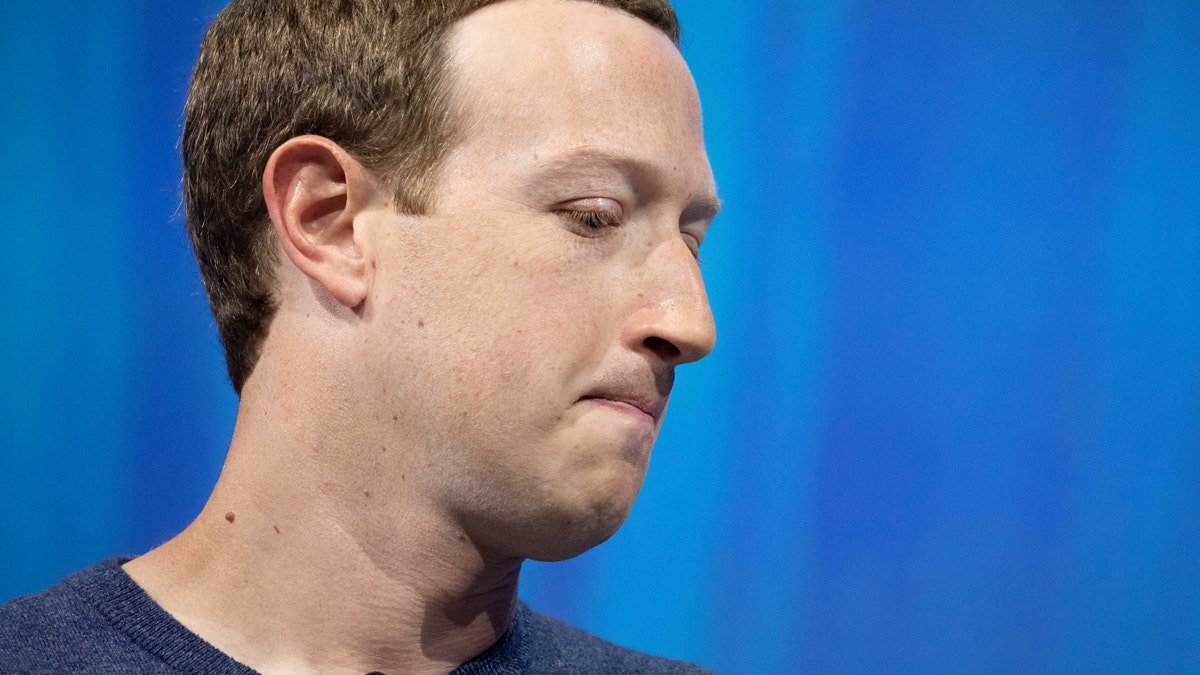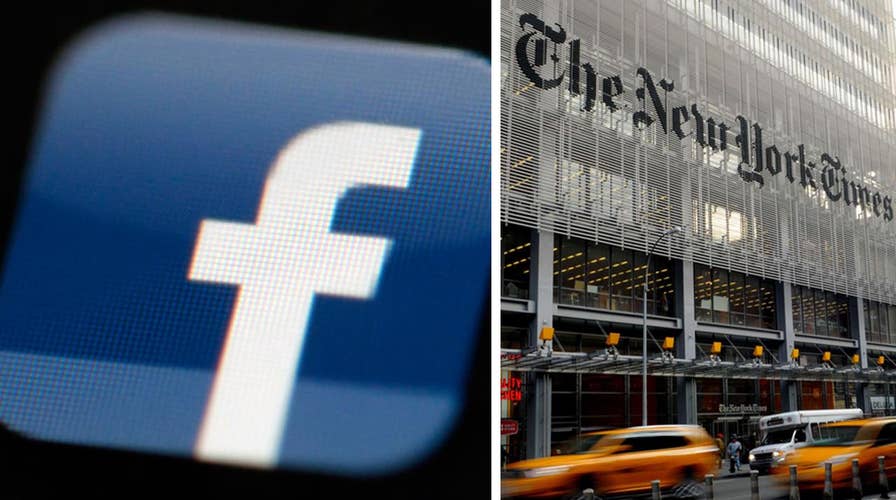Facebook-New York Times fight gets ugly
Facebook slammed a blockbuster New York Times report for 'inaccuracies' after the newspaper painted a scathing portrait of Mark Zuckerberg and Sheryl Sandberg, the company's top leaders.
Following a scathing report from The New York Times that questioned whether Facebook CEO Mark Zuckerberg and COO Sheryl Sandberg acted urgently enough to counter the Russian disinformation campaign, Zuckerberg said the social networking giant would create an independent oversight committee to help deal with moderating certain issues related to content posted on its site.
In a Thursday post to his page, Zuckerberg gave some initial details on how the oversight body, which would also have to uphold Facebook's core principles of giving people a voice while keeping them safe, would operate.
"First, it will prevent the concentration of too much decision-making within our teams," Zuckerberg wrote. "Second, it will create accountability and oversight. Third, it will provide assurance that these decisions are made in the best interests of our community and not for commercial reasons."
NO MORE FOMO? CUTTING BACK ON FACEBOOK AND SNAPCHAT WILL MAKE YOU LESS LONELY, DEPRESSED, STUDY SAYS
Zuckerberg added that although the company is still in the early stages of getting this committee to operate, it "is an incredibly important undertaking." Facebook is starting with a consultation period to work on who will be on the committee and how they are selected; how to ensure independence from Facebook; how do people petition the body and which cases they pick.
The plan is to pilot these ideas over different regions throughout the world in the first half of next year — consulting with a range of external experts, academics, journalists and others who study issues like hate speech and freedom of speech — and establish it by the end of the year.
"Over time, I believe this body will play an important role in our overall governance. Just as our board of directors is accountable to our shareholders, this body would be focused only on our community," Zuckerberg wrote. "Both are important, and I believe will help us serve everyone better over the long term."
The post also notes the importance of addressing potential bias in Facebook's machine learning systems, which Zuckerberg discussed on the press briefing Thursday.
"This is an ethics issues in addition to a computer science issue," the chief executive said. "We’re focused on building a computationally rigorous and analytical framework to make sure we don’t have bias in our systems."
Separately, the company's board of directors issued a statement saying that the company was too slow to take action in response to the Russian interference. "As a board, we did indeed push them to move faster," according to the statement obtained by The Wall Street Journal.
GOOGLE'S SECRET SEARCH STRATEGY: HOW THE TECH GIANT TAMES THE DATA BEAST
Facebook backlash
Earlier on Thursday, the tech behemoth slammed the New York Times report for "inaccuracies" and cut ties with a GOP-opposition firm after the newspaper painted a scathing portrait of Zuckerberg and Sandberg.
In a 6,100-word story, the Times reports that over a two-year period, the social network's tactics were to delay, deflect and deny as it faced increasing scrutiny over Russian disinformation and the corrosive spread of hate speech.

Mark Zuckerberg, chief executive officer and founder of Facebook, is seen above. (Getty Images)
In a Thursday blog post, the Menlo Park, Calif.-based social media giant took issue with numerous aspects of the Times piece, which claimed that Facebook was too slow to investigate Russian interference in the 2016 U.S. presidential election and questioned the company's handling of comments made in 2015 by then-Presidential candidate Donald Trump regarding a Muslim ban.
During the press call, Zuckerberg said he "did not know" about Facebook's work with Definers Public Affairs, the GOP-opposition firm called out by the Times for pointing journalists to George Soros' funding of one group involved with Freedom from Facebook. In response to the Times revelations, Open Society Foundations called Facebook's actions "beyond the pale" and "astonishing" in a letter to Zuckerberg.
The CEO also said that no one on his team ordered Definers to attack Facebook's competitors and that the company would conduct a thorough review of all its lobbying relationships.
"The bottom line on this, the intention was not to attack an individual, but demonstrate that this group that was saying it was spontaneous and grassroots, was not that," Zuckerberg said. "It was well funded. I have tremendous respect for George Soros, even though we disagree about the internet. Bottom line is that we’re no longer working with this firm."
Although Zuckerberg has faced calls to resign and was questioned about it during Thursday's press briefing, he asserted that the company is improving and that many of the problems it faces will take a long time to fix.
"This stuff is painful. I don’t love that we’re in a position where we aren’t delivering the quality that we want every day. But you have to allow for teams to get some time to execute things," he said. "I’m fully committed to getting this right."
Fox News' Frank Miles contributed to this article. Follow Chris Ciaccia on Twitter @Chris_Ciaccia





















